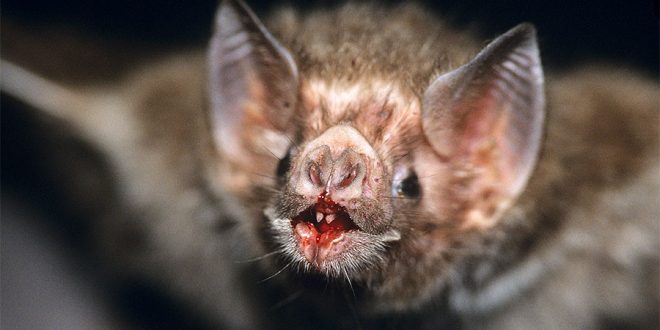Wild vampire bats have been found feeding on humans in Brazil for the first time – and they could be spreading disease.
Scientists from the Federal University of Pernambuco in Recife, Brazil, led by Enrico Bernard, analysed 70 faeces samples from a colony of vampire bats, named Diphylla ecudata, that reside in Catimbau National Park in northeast Brazil.
They also discovered that the vampire bats consumed blood from chickens. Both human and chicken blood are “a novel prey for this species,” the study said.
“We were quite surprised,” Bernard told New Scientist. “This species isn’t adapted to feed on the blood of mammals.
“They are adapting to their environment and exploiting the new resources.”
More from New Scientist:
The bats typically target large birds at nighttime, sucking a spoonful of blood from a single animal as a meal. They are adapted to process fat, the main component of bird blood, as opposed to the thicker, high-protein blood of mammals.
Previous experiments showed that when only pig and goat blood was available, many bats opted to fast, sometimes starving to death.
But human encroachment may be driving the species to try new blood. The park is now home to several human families and the bat’s usual prey, such as guans and tinamous, are disappearing due to deforestation and hunting.
The study suggests that the diet of hairy-legged vampire bats is more flexible than expected and could have public health consequences, considering the potential for the transmission of rabies in the region.
Bernard told New Scientist that they suspect the vampire bats are entering people’s bedrooms through holes in the roofs or windows, or are targeting people sleeping outside in hammocks. The team is currently following up with residents in the area.
“We want to find out how often they are being bitten, when and how,” Bernard told New Scientist.
The research was published in the journal Acta Chiropterologica.
Agencies/Canadajournal
 Canada Journal – News of the World Articles and videos to bring you the biggest Canadian news stories from across the country every day
Canada Journal – News of the World Articles and videos to bring you the biggest Canadian news stories from across the country every day



